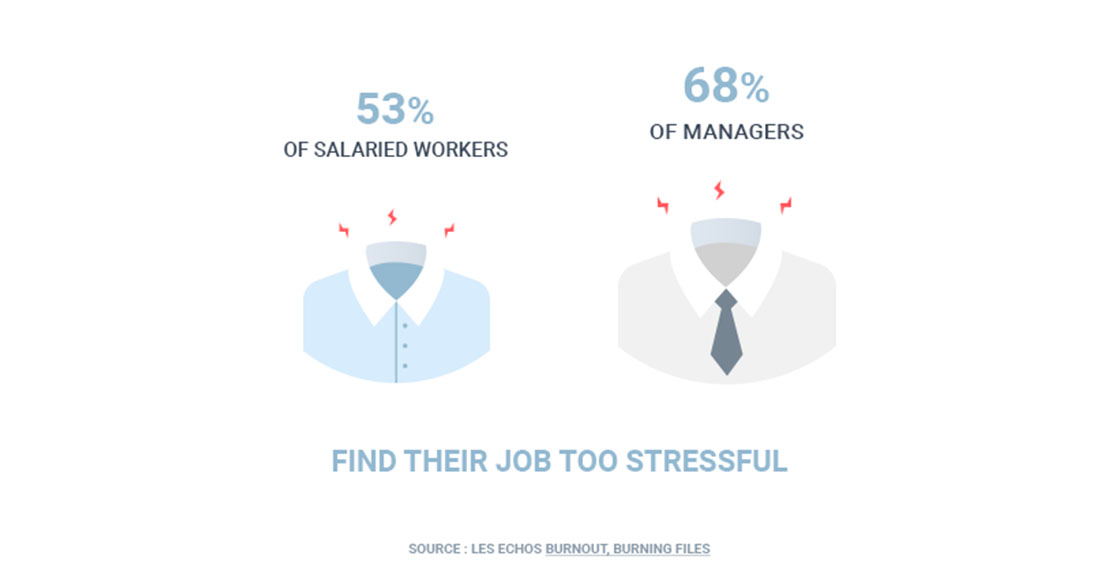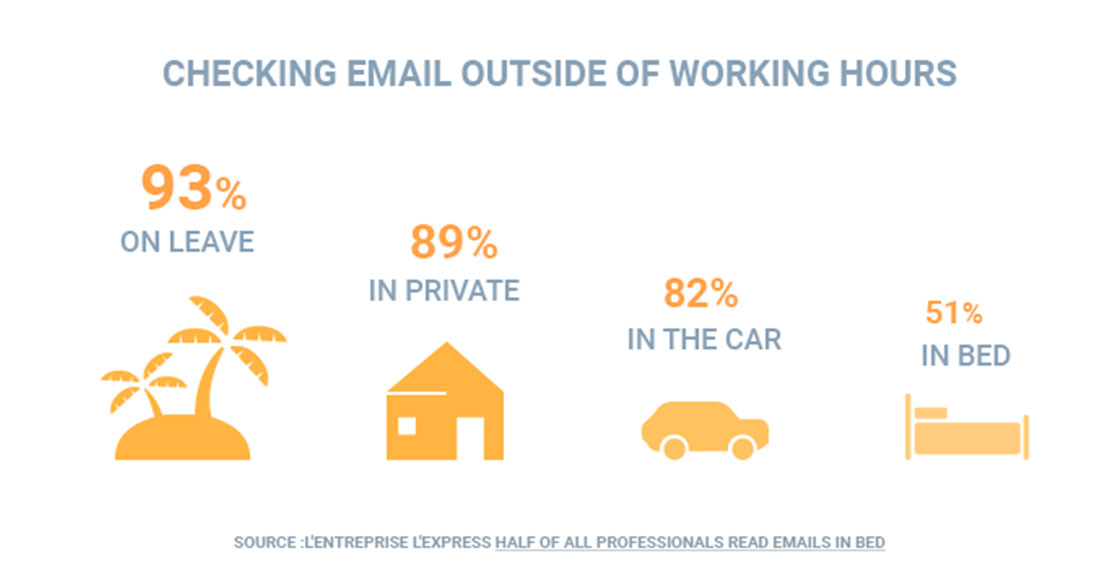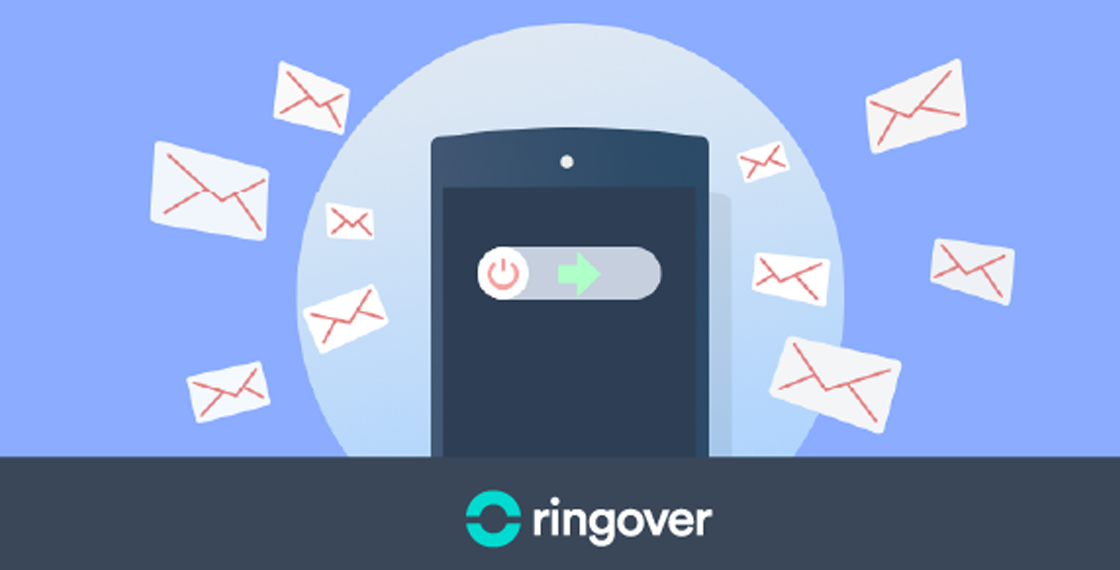Table of Contents
Unmanageable stress, emotional fatigue, insomnia, back pain, heart palpitations, headaches, cognitive and physical exhaustion…these are some of the symptoms of “burnout,” a problem concerning an increasing number of employees around the world. According to a YouGov survey, 51% of full-time UK employees said they have experienced anxiety or burnout in their current job.Working conditions that may be to blame for this epidemic are the first factor under scrutiny: an increased work pace, more responsibilities, and a tendency to never completely disconnect from work due to the digital revolution. In France, a new law stating that all employees have the “right to disconnect” was just passed, in an effort to combat burnout.
RESPECT FOR THE BALANCE BETWEEN PROFESSIONAL AND PERSONAL LIFE
The right to disconnect means the right for a salaried worker not to be constantly reachable by their company. This implies, notably, the ability to turn off all digital intrusions such as phones and email outside of working hours. The objective of this French law is to protect resting periods for salaried workers, in order to preserve the balance between their professional and personal lives.

With work rhythms getting faster all the time, combined with the fear of losing one’s job and the productivity culture, employees are more stressed out than ever. According to Cegos, one of the world leaders in online training, 53% of salaried workers and 68% of managers find their work too stressful. Digital transformation has uprooted traditional work methods and greatly reduced the boundary between working hours and non-working hours. At any time, day or night, we can - must, even - check our email, access company programs through the cloud, and share information on our company’s social media outlets. In concrete terms, the right to disconnect concerns all companies of more than 50 employees. These companies must establish “instruments of digital tool regulation,” or by default, draw up documentation defining the modes of applying of the right to disconnect, providing training and awareness programs as well for the benefit of employees, managers and directors.
WITH OR WITHOUT A LAW, HOW CAN THIS “RIGHT TO DISCONNECT” BE PUT IN PLACE?
Certain sizeable French companies have established policies to guarantee their employees the right to disconnect. Renault, French auto maker, limits the use of professional voicemail and mobile phones evenings and weekends. Similarly, French bank BNP Paribas queues emails sent to employees during non-working hours until they return to work.

Studies confirm: the business world makes less and less distinction between personal and professional time. According to a 2013 study by software editing company Roambi, 89% of of their employees check their professional email multiple times a day during private time, 93% while on leave, 82% in the car and 51% from bed. In practice, however, many voices are opposed to the obligation of the right to disconnect. Seen as a sort of infantilisation of employees, it would only cause more stress, with employees forced to comply with limited hours imposed upon them by their company and complete tasks by a certain time - the opposite of the flexibility that the digitalisation of business is supposed to bring. Cutting off servers between 6pm and 8am would make it impossible to work with a more flexible schedule, not to mention in another time zone!So here are a few practical ideas, as goes disconnection for your employees:Training and awarenessOffering awareness training regarding the reasonable use of digital devices is a first step to explore. Stress, pressure and other negative aspects of the business world are often the result of bad management practices that in turn push employees to constantly check email. Being a manager is a job in itself, and must be learned like any other. Empathy, stress management and project oversight are competencies to be obtained with time, just as with web development or digital marketing.Tools offering some flexibility Instead of blocking emails or servers overnight, companies may leave it up to each employee to filter messages during desired hours. Slack, an internal chat service, allows each employee to customise messaging hours so as to receive notifications only during working hours, or in case of emergency. At RingOver, we allow our users to choose working hours for their professional number: no unwanted calls at night or on weekends!Common sense and exemplary leadershipWe must not forget that the digital revolution is still a recent phenomenon. One may hope that future generations born in its midst will still be able keep their private lives free from work-related nuisances. In the meantime, the best way to define standards for companies is to set the example. If the CEO and all departmental heads can manage to avoid emails and calls outside of business hours, there is a good chance that their employees can do the same. Do you have any ideas for putting the right to disconnect in place for your own company?
Published on December 21, 2017.

